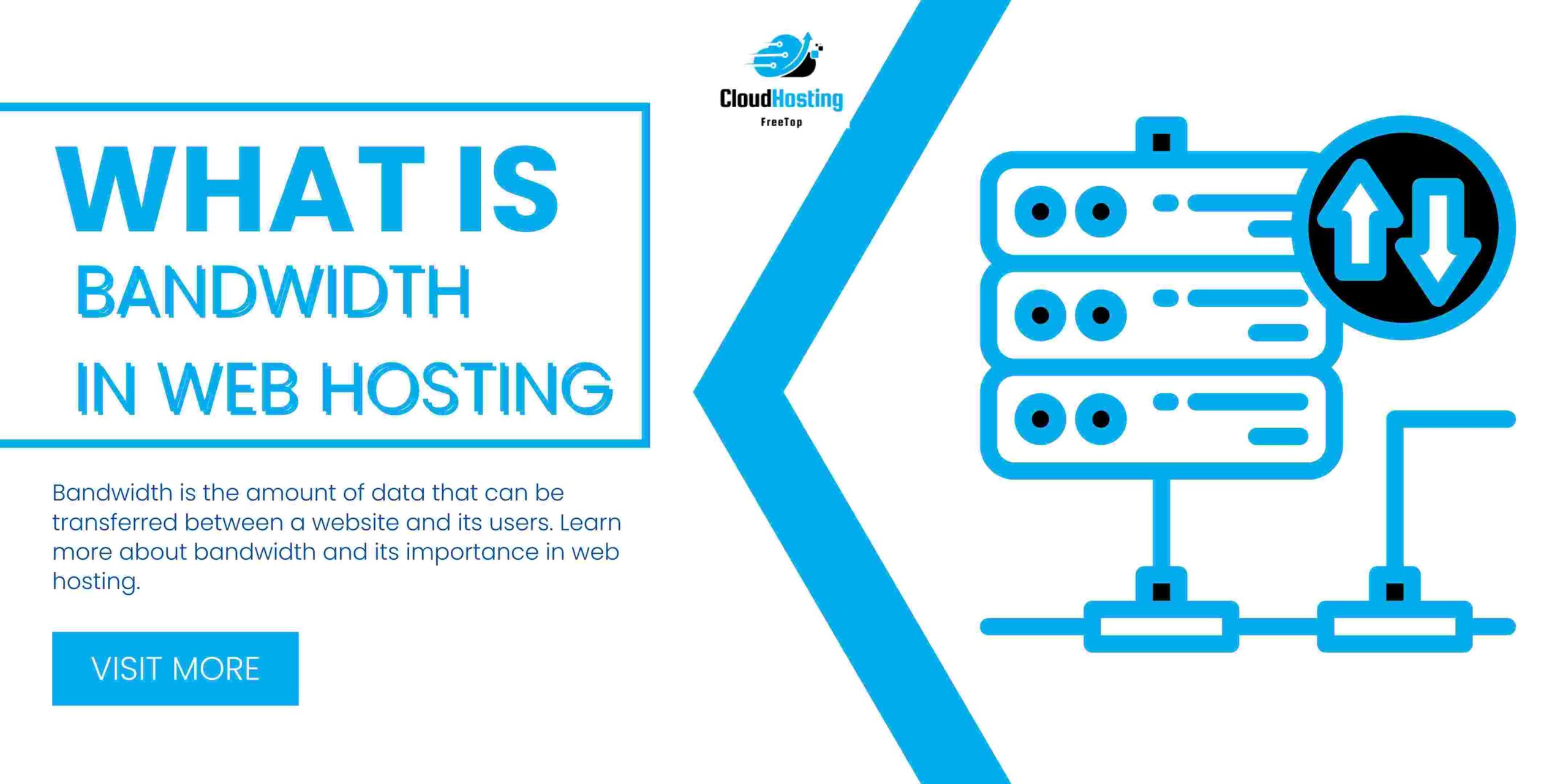Bandwidth is a critical concept in web hosting. It refers to the amount of data that can be transferred between the web server and the users who access the website. Bandwidth is a crucial factor that determines the speed and efficiency of website performance. In this article, we’ll explore the basics of bandwidth in web hosting, how it works, and what you need to know as a website owner.
What is Bandwidth in Web Hosting?
Bandwidth, in web hosting, refers to the amount of data that can be transferred from the web server to the user’s computer or device within a specific period, usually measured in seconds or minutes. This data includes all the files, images, videos, and other content that make up your website. The more data that needs to be transferred, the more bandwidth is required.
How Does Bandwidth Work in Web Hosting?
When a user visits a website, their computer sends a request to the web server for the website’s files. The server responds by sending the files to the user’s computer, and this transfer of data is known as a data transfer. Bandwidth is the amount of data that can be transferred during this process. If the website’s files are too large, it may take longer to transfer, which can result in slower website performance.
How Much Bandwidth Do You Need for Your Website?
The amount of bandwidth you need for your website depends on several factors, including the number of visitors to your site, the size of your website’s files, and the types of files you have. If you have a high-traffic website with many visitors, you will need more bandwidth than a smaller website with fewer visitors.
Factors that Affect Bandwidth Usage
Several factors can affect your website’s bandwidth usage, including the following:
- File size: The larger the files on your website, the more bandwidth will be required to transfer them.
- Traffic: The more visitors your website receives, the more bandwidth will be required to handle their requests.
- Media content: Websites with lots of images, videos, or audio files will require more bandwidth.
- Website design: Websites that have complex designs or require lots of HTTP requests may require more bandwidth.
Ways to Reduce Bandwidth Usage
Reducing your website’s bandwidth usage can help improve website performance and speed. Here are some ways to do this:
- Compress images and videos: Compressing images and videos can reduce their file size, making them easier to transfer and reducing bandwidth usage.
- Use a Content Delivery Network (CDN): A CDN can cache your website’s files on servers worldwide, reducing the amount of data that needs to be transferred.
- Minimize HTTP requests: Websites that require lots of HTTP requests can increase bandwidth usage. Minimizing these requests can help reduce bandwidth usage.
- Use a caching plugin: A caching plugin can store your website’s files in the user’s browser cache, reducing the need for repeated data transfers.
How to Monitor Bandwidth Usage
Most web hosting providers offer tools to monitor your website’s bandwidth usage. These tools can help you identify spikes in traffic or data transfers and optimize your website accordingly.
Bandwidth and Website Speed
Bandwidth is a critical factor that affects website speed and performance. If your website’s files are too large, it may take longer to transfer them to the user’s computer, resulting in slower website performance. This can lead to a poor user experience and impact your website’s search engine rankings.
To ensure your website is fast and responsive, it’s important to optimize your website’s files and reduce your bandwidth usage. This can be achieved by compressing images and videos, minimizing HTTP requests, and using a Content Delivery Network (CDN) to cache your website’s files.
Additionally, choosing a web host that provides sufficient bandwidth for your website’s needs is essential. Some web hosting providers may limit bandwidth or charge extra fees for exceeding your allotted bandwidth, so be sure to choose a plan that meets your website’s requirements.
Overall, understanding bandwidth and its impact on website speed and performance is crucial for website owners. By optimizing your website’s files and choosing a web host with sufficient bandwidth, you can ensure your website provides a fast and responsive user experience.
Choosing a Web Host Based on Bandwidth
When choosing a web host for your website, one of the key factors to consider is bandwidth. Bandwidth refers to the amount of data that can be transferred between your website and its users within a specific period of time, usually measured in bytes per second or megabits per second.
It’s important to choose a web host that provides sufficient bandwidth for your website’s needs. If your website receives a lot of traffic or contains large files, such as high-resolution images or videos, it will require more bandwidth to ensure fast and reliable performance.
Some web hosting providers may offer unlimited bandwidth plans, but it’s important to read the fine print. In some cases, these plans may come with restrictions or hidden fees, so be sure to do your research before signing up.
It’s also important to consider the location of your web host’s servers. The closer the server is to your website’s users, the faster the website will load. This is because data has to travel a shorter distance, reducing the time it takes to transfer information.
When comparing web hosting providers, look for those that offer a reliable and fast network, 24/7 customer support, and scalability options to accommodate future growth. By choosing a web host that provides sufficient bandwidth and meets your website’s needs, you can ensure your website provides a fast and reliable user experience.
Conclusion
In conclusion, bandwidth is a crucial factor in website speed and performance. To ensure your website provides a fast and responsive user experience, it’s important to optimize your website’s files and choose a web host that provides sufficient bandwidth for your website’s needs.
By compressing images and videos, minimizing HTTP requests, and using a CDN to cache your website’s files, you can reduce your website’s bandwidth usage and improve its performance. Additionally, choosing a reliable web host with fast servers and 24/7 customer support is essential for ensuring your website runs smoothly and efficiently.
Overall, understanding bandwidth and its impact on website speed and performance is crucial for website owners. By taking the necessary steps to optimize your website and choose a web host with sufficient bandwidth, you can provide your users with a fast and seamless experience that keeps them coming back for more.
FAQs
- What is bandwidth in web hosting? Bandwidth refers to the amount of data that can be transferred between your website and its users within a specific period of time.
- How does bandwidth affect website speed? If your website’s files are too large, it may take longer to transfer them to the user’s computer, resulting in slower website performance. This can lead to a poor user experience and impact your website’s search engine rankings.
- What happens if I exceed my web hosting provider’s bandwidth limit? Some web hosting providers may limit bandwidth or charge extra fees for exceeding your allotted bandwidth, so it’s important to choose a plan that meets your website’s requirements to avoid unexpected charges or website downtime.
- How can I optimize my website’s files to reduce bandwidth usage? You can compress images and videos, minimize HTTP requests, and use a CDN to cache your website’s files to reduce your website’s bandwidth usage.
- What should I look for when choosing a web hosting provider based on bandwidth? When comparing web hosting providers, look for those that offer a reliable and fast network, 24/7 customer support, scalability options to accommodate future growth, and sufficient bandwidth to meet your website’s needs.

